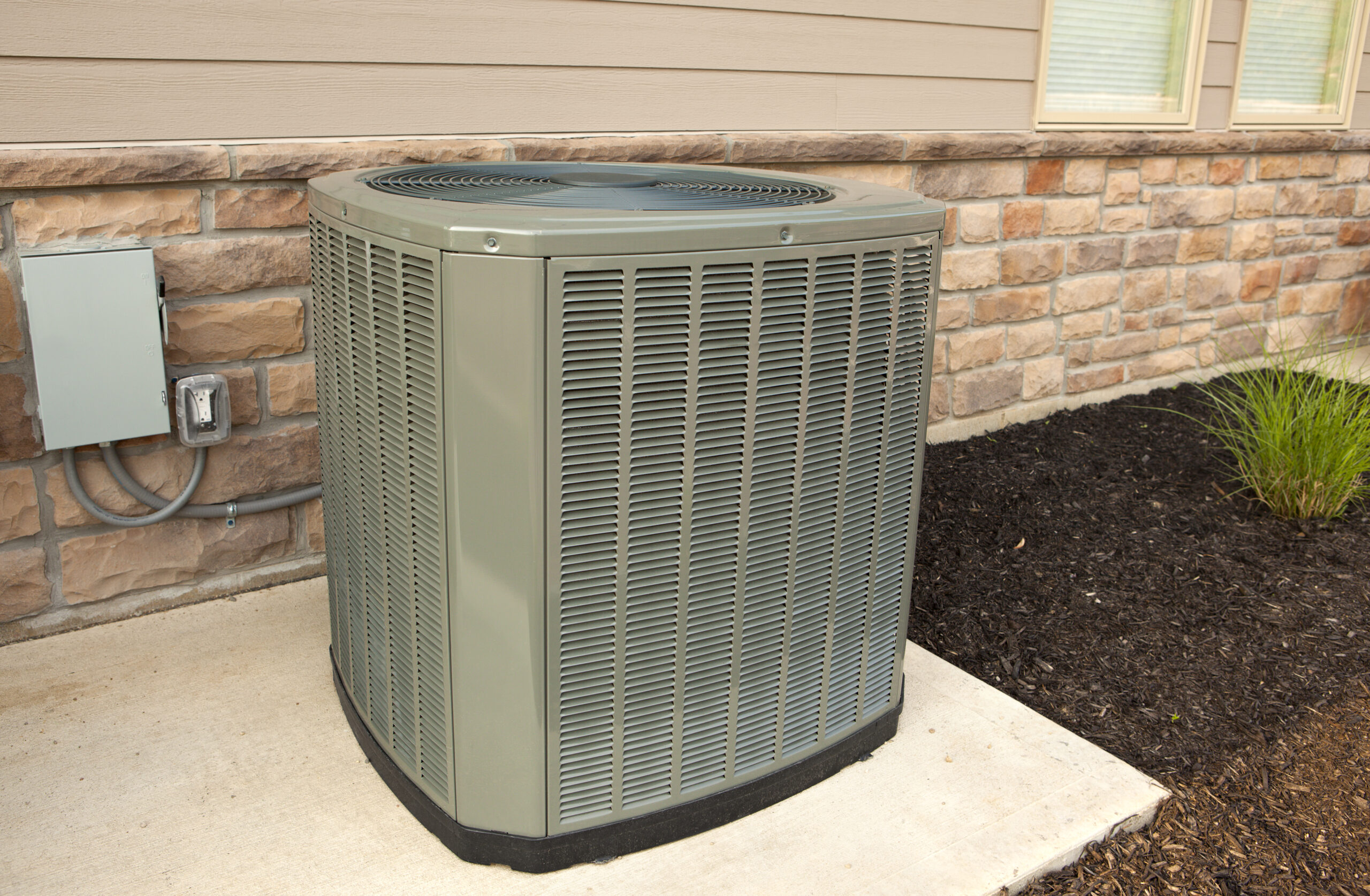
Having a troubleshooting guide for an AC compressor that won’t turn on helps homeowners diagnose the issue quickly and accurately, allowing for timely repairs. A comprehensive troubleshooting guide ensures that individuals can identify potential safety hazards associated with electrical or mechanical failures. If your AC compressor won’t turn on, use this guide to pinpoint the cause. Then, contact an HVAC technician right away to confirm the cause and implement the right solution.
What Does an AC Compressor Do?
An AC compressor, a crucial component of any HVAC system, is responsible for increasing the pressure of the refrigerant and distributing it throughout the cooling system. Its principal use is to raise the temperature and pressure of refrigerant gas by compression. The next step is for the high-pressure gas to pass past the condenser coil, which helps the refrigerant condense into a liquid by releasing heat into the surrounding air. After that, the liquid refrigerant makes its way to the evaporator coil, where it cools the air inside by absorbing its heat. The compressor is the key component in the air conditioner’s heat exchange mechanism.
Maryland’s Environmental Factors That Affect AC Compressors
Hanover, Maryland’s diverse climate presents various environmental factors that impact AC compressors. The state experiences hot and humid summers, with temperatures often exceeding 90°F. High humidity levels can strain compressors by requiring them to work harder to remove moisture from the air. Additionally, Maryland’s winters bring cold temperatures, occasionally dropping below freezing. Cold weather can cause issues like refrigerant leaks and compressor damage. Furthermore, Maryland’s coastal location exposes AC units to salty air, increasing the risk of corrosion.
What It Means When the AC Compressor Won’t Turn On
If the AC compressor won’t turn on, the entire unit won’t work. This can lead to major inconveniences in your daily life since the system won’t be able to cool your home. There are many reasons why the AC compressor might not come on. Knowing the exact cause is vital to fixing the issue correctly.
Faulty Thermostat
A faulty thermostat can cause the AC compressor not to come on for several reasons. It could be a simple issue like dead batteries, incorrect settings or a malfunctioning sensor. Additionally, wiring problems, dust accumulation or even a thermostat placed in the wrong location can lead to compressor issues. Addressing thermostat issues promptly is crucial for restoring proper functionality to the AC system and ensuring optimal cooling performance.
Tripped Breaker
A tripped circuit breaker can stem from various causes, such as electrical overloads, short circuits and faulty wiring. When the circuit breaker trips, it disrupts the power supply to the AC compressor, preventing it from turning on. This could result in the compressor not receiving the necessary electrical power to operate effectively. Identifying and addressing the underlying cause of the tripped circuit breaker is necessary to restore power to the entire cooling system.
Blocked Condensate Drain
Air conditioning systems have a condensate drain line that can easily clog due to debris accumulation, algae blooms or mineral deposits. When this happens, it makes it impossible for the unit’s condensate water to drain properly. As a result, water begins to accumulate in the system, activating a safety feature that turns off the compressor’s power to prevent water damage. Deactivating this safety feature and powering back on the compressor depends on removing the clog from the condensate drain.
Faulty Contactor
Corrosion, electrical issues and regular wear and tear can lead to the failure of the AC unit’s contactors. When the contactor fails to engage properly, it disrupts the electrical circuit that powers the compressor. Consequently, the compressor does not receive the necessary power to start up, causing the air conditioner to cease functioning. To rectify the issue and restore operation, an HVAC technician must replace the broken contactor with a new one. This ensures the compressor resumes normal operation, allowing the AC unit to function efficiently once again.
Faulty Capacitor
A malfunctioning capacitor in an AC unit can hinder the compressor from starting up in several ways. Degradation of the capacitor may lead to issues such as electrical shorts or electrolyte leakage. When the capacitor fails, it may not provide sufficient electricity to start the compressor motor at all. To restore proper operation, it’s crucial to have an expert replace the defective capacitor with a new one.
Compressor Overload
The compressor’s overload safety system will activate if the internal temperature or pressure reaches dangerous levels, causing the machine to shut down. Possible causes of this problem include refrigerant leakage, blocked coils and inadequate airflow. Preventing compressor overload requires resolving the underlying problem, such as dirty condenser coils, a broken fan motor or electrical issues.
Refrigerant Leak
If there isn’t enough refrigerant in the system, the compressor won’t get enough pressure to work properly and it won’t start. These leaks reduce the cooling capacity and efficiency of the system, which may cause the compressor to overheat. To avoid compressor failure and make sure the air conditioner is working properly, it is critical to find leaks quickly and fix them.
Faulty Control Board
A faulty control board in an AC system can prevent the compressor from starting due to various reasons. Issues such as electrical malfunctions, component failure or damage to circuitry can disrupt the signal transmission necessary for compressor activation. Additionally, a malfunctioning control board may fail to communicate with other system components, leading to compressor inactivity. Fixing this problem will require the assistance of a licensed HVAC expert.
Faulty Pressure Switch
Problems such as sensor malfunctions, damaged wiring or inaccurate pressure readings can hinder a pressure switch’s ability to signal the compressor effectively. Additionally, if the switch port becomes blocked or clogged, it may provide erroneous pressure readings. These issues can disrupt the proper functioning of the pressure switch, preventing the compressor from receiving the necessary signals to start. The only way to fix this is to have an HVAC technician replace the faulty pressure switch.
What to Do
Homeowners can take many preventative measures to avoid issues with their air conditioning compressors. To keep the compressor from overworking, it’s important to change the air filters regularly. Keeping the outside unit clean and clear of dirt, landscaping, vegetation and pets is important for keeping it running at its best. Preventing compressor damage also requires checking refrigerant levels and making sure there are no leaks. Verifying the integrity of electrical connections and parts regularly guarantees their proper operation. The best way to stay on top of these upkeep requirements is to schedule annual professional maintenance. If you’re already experiencing problems with an AC compressor, contacting an HVAC technician can prevent further problems. Ignoring compressor problems will lead to significant issues and costly repairs down the line.
With warmer weather right around the corner, there’s never been a better time to schedule AC maintenance. Beltway Air Conditioning & Heating works on heaters and air conditioners. We also provide indoor air quality and duct cleaning services. If you’re experiencing issues with your AC compressor, call us right away to schedule an AC repair.


